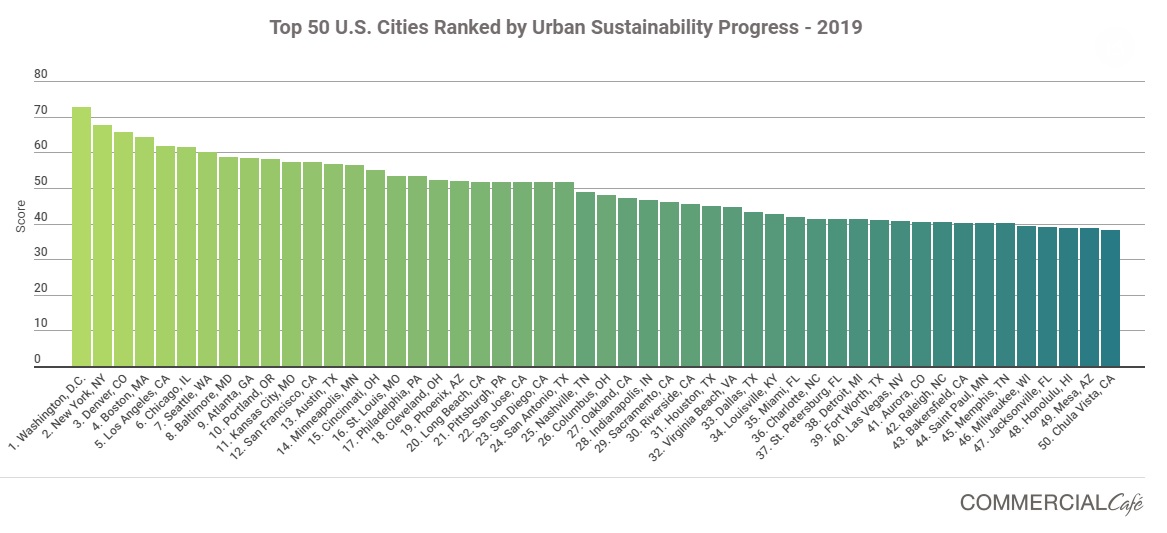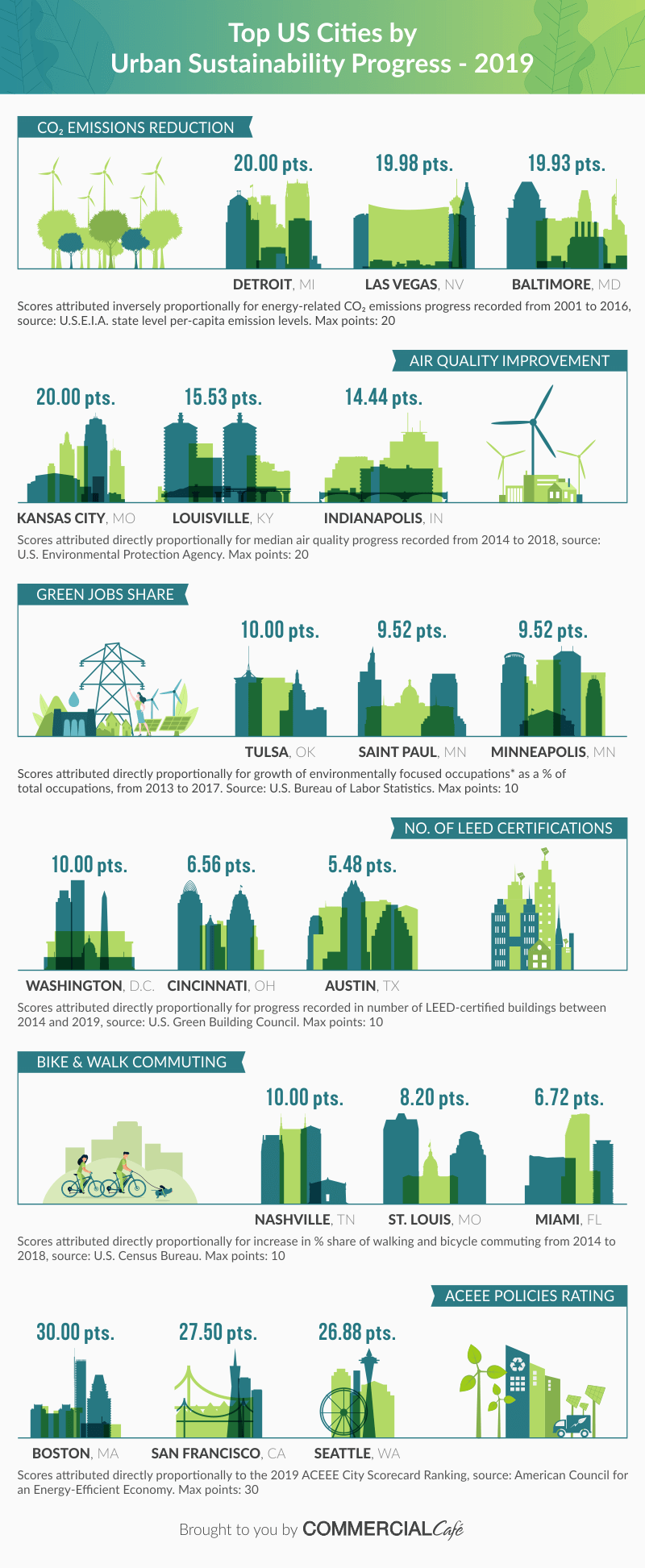Top 50 US Cities Ranked by Progress of Urban Sustainability
What makes a city green? The definition refers almost entirely to best practices that ensure sustainable development. According to the 2018 Citizen Centric Cities report released by Arcadis, sustainable urban centers are “places that are planned and managed with consideration for social, economic, environmental impact, providing a resilient habitat for existing populations, without compromising the ability of future generations to experience the same.” In this article, we identify the 50 cities in America that are making the largest strides toward improving the lives of their residents, as well as the ease of doing business, by embracing urban sustainability.
The data we used is compiled from sources we deem to be credible, and focuses on urban, environmental, and health improvement factors. For each city, we looked at the reduction in CO2 emissions, improvements in air quality, differences over time in the share of walking and biking commuters, the increase in number of Leadership in Energy and Environmental Design (LEED) certifications earned, the growth in environmentally focused occupations, as well as ratings given by the American Council for an Energy-Efficient Economy (ACEEE). Each metric is detailed in the methodology section.
Find out how your city fared in the ranking below.
Top 10
The data we analyzed showed that Washington, D.C. is the greenest lantern in the land, maintaining its high standards and urban development policies geared toward sustainability. Next, New York City’s high walkability, growth in LEED certifications, and well-rated sustainability oriented policies pushed it up to second place. Placing third overall, Denver achieved top 10 scores for its increase in green jobs and in LEED-certified building, as well as for the city’s growth in the adoption of green commuting. Boston’s highly rated policies to increase efficiency in city government and real estate development code requirements scored highest in our ranking for that metric, landing the city in fourth overall. Los Angeles is fifth, scoring high for its significant increase in LEED-certified buildings and sustainable city policies.
Chicago came in sixth, partly due to its goals to improve walkability and access to transportation, as well as increase efficient energy usage in lower-income areas. Seattle, at seventh, fared well with respect to increases in walking and biking commuters, as well as city policies—such as strategies to mitigate urban heat islands and plans for distributed energy systems. Baltimore stands in eighth, ranking high for its reduction of CO2 emissions and for green commuting. Atlanta is ninth, with good scores in CO2 reduction and median air quality improvements. Portland takes 10th place overall, scoring well for its growth in green jobs, increase in LEED certifications and sustainability-oriented city policies.




Sorry, the comment form is closed at this time.